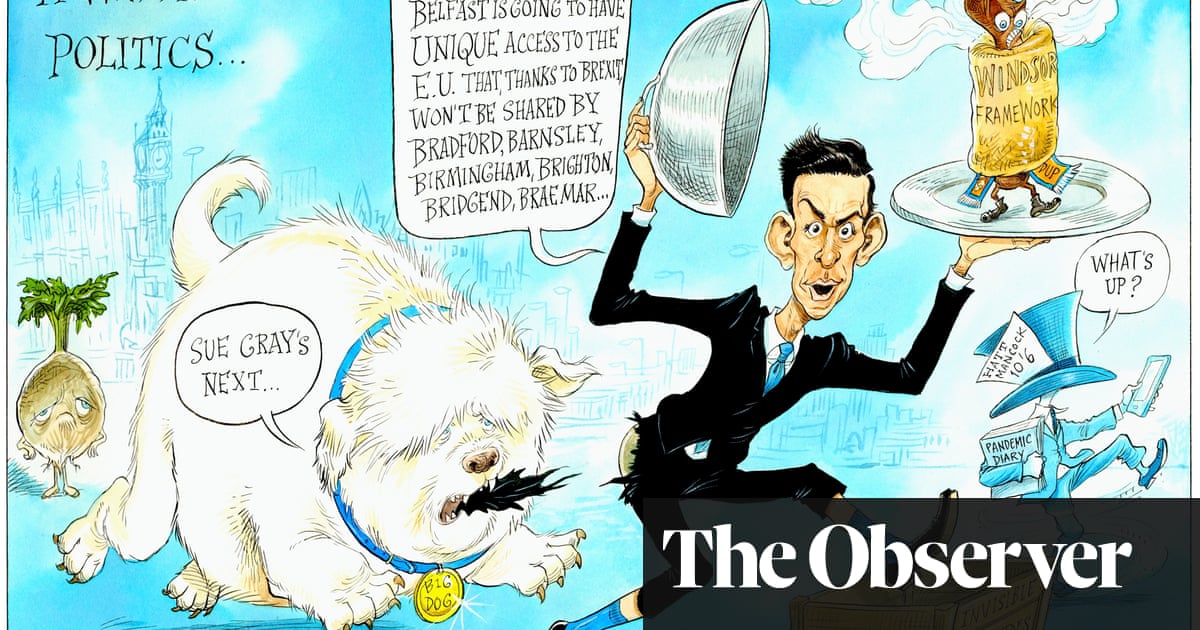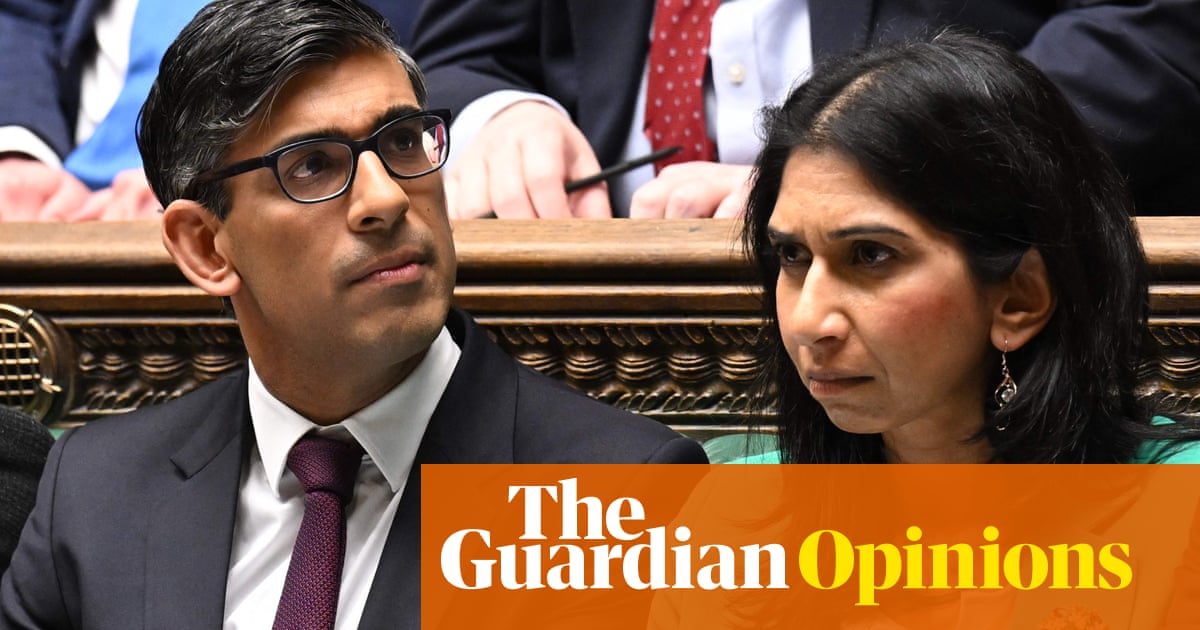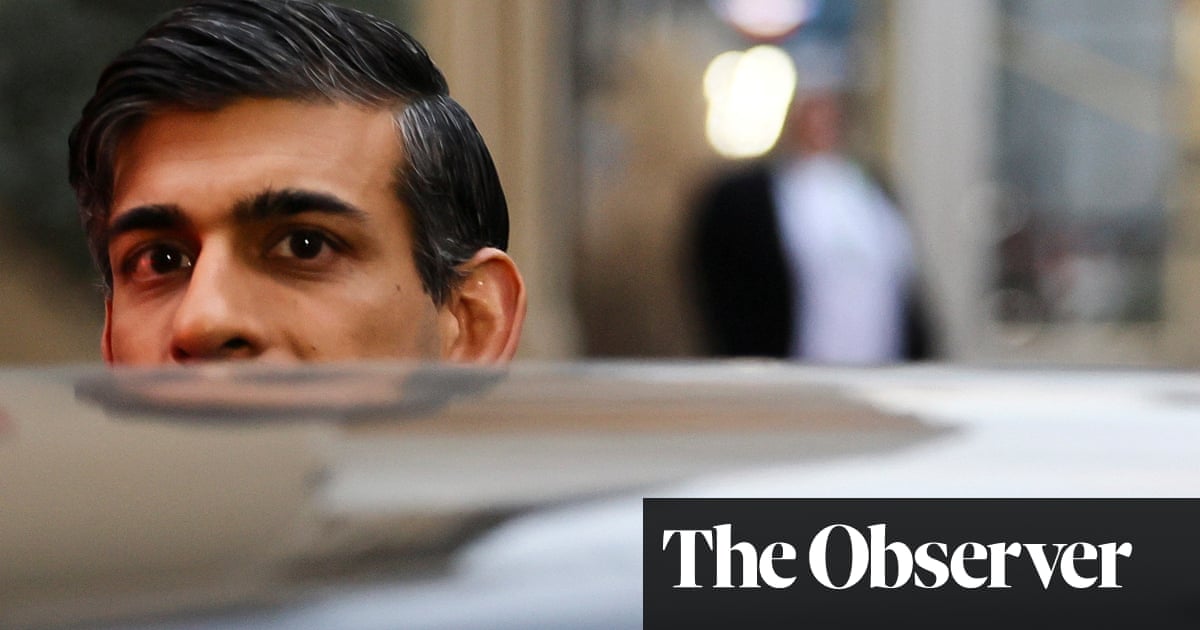
So smoothly and swiftly has Rishi Sunak risen through the Tory ranks that by the time he reached Westminster, the only blot on his political copybook was a conspicuous pair of blue wellies.
Having unexpectedly won the right to contest the ultra-safe Yorkshire seat of Richmond at the 2015 election, Sunak was soon to be seen tramping through his new countryside constituency as he made the seamless switch from Mayfair hedge fund manager to Tory election candidate. Yet his colourful footwear marked him out as a city newcomer to the amused shire Tories in the seat.
It is telling that such a minor faux pas is one of the few awkward moments for Sunak reported in an unofficial biography written by Michael Ashcroft, the Tory grandee and donor. Sunak has enjoyed a seemingly charmed passage from Winchester College head boy, to millionaire City whiz-kid, to Tory plum seat, to the cabinet – and all without the usual acquisition of enemies. Yet before a spending review and budget that has seen Sunak forced to fend off the demands of cabinet colleagues including the prime minister, even his allies believe the chancellor will now have to get his boots dirty.
No one can say Sunak hasn’t faced adversity in the job, having unveiled the unprecedented furlough scheme to pay the wages of millions of workers little more than a month into the job. But having been the chancellor who has been spending billions to keep the economy afloat, he is now embracing his fiscally conservative instincts. As one veteran Tory MP succinctly puts it, he has had a dramatic change in persona: “No more Santa Claus, a bit more Grinch.”
In the last few weeks, he has faced Tory demands for a reversal of a £6bn cut to universal credit payments, an increased budget for the courts system and the slashing of household energy bills. Meanwhile, he has been dealing with a prime minister keen to keep the spending taps running for pet projects and to solve the political problems of the day – most recently, Boris Johnson sided with business secretary Kwasi Kwarteng in ordering his chancellor to help energy-intensive businesses with their ballooning energy costs. After a week in which the Treasury sounded caution over the government’s net zero plans, and before his budget, Sunak is now flexing his muscles.
Allies said that with a prime minister liable to be swayed by the latest crisis, the chancellor sees himself as providing the “economic guardrails” to the government. In fact, while the runup to the budget has been relatively low-key, it masks a huge amount of political tension building at the heart of the government.
One Whitehall insider said that Sunak was increasingly trying to save the prime minister from himself, making him “come to terms with the reality” that pledges have to be funded – as with the new £12bn levy to pay for health and social care. Sunak’s task is “to keep the government on the tracks” amid the prime ministerial chaos, said an insider.
It is far from the circumstances surrounding Sunak’s appointment, when some believed he would be a “chino” – chancellor in name only. He took the job after the resignation of Sajid Javid, who quit when No 10 ordered the creation of a joint No 10-Treasury advisory team – a prime ministerial power grab that Javid feared would undermine the credibility of the Treasury.
In fact, such has been the diligence of Sunak’s chancellorship that, far from being captured by No 10, key figures in the unit are now seen as “Rishi’s people”. Inside the Treasury, people note his willingness to listen politely to a range of MPs with whom he disagrees – a quality they contrast with previous chancellor, Philip Hammond, prone to refusing to meet colleagues he regarded as “imbecilic”.
While aides say Johnson and Sunak continue to work well together, there are already signs of wariness. Johnson was reported to have been angered by the leaking of a letter from the chancellor supporting the loosening of travel rules in the summer.
Meanwhile, Sunak’s friends view the appointment of Simon Clarke as the chief secretary to the Treasury in the recent reshuffle as an attempt by Johnson to show “No 10 is in charge”. Clarke was an early supporter of Johnson’s leadership campaign. The promotion of Liz Truss is viewed in similar terms. Her elevation to foreign secretary, some of Sunak’s allies fear, is an attempt to create a rival contender for the Tory crown, or perhaps even a possible replacement chancellor should relations really go south between No 10 and No 11.
In attempting to turn down the spending taps, Sunak is also returning to his instincts. “Rishi will be sympathetic to a point [on prime ministerial spending demands], but not on the basis of an open bloody chequebook,” said a person familiar with his thinking. With tough spending decisions now coming thick and fast, potential problems that have glanced off him so far may begin to stick.
Figures within the NHS were frustrated at the Eat Out to Help Out scheme, which some blamed for increasing Covid infections last year, but the spotlight has moved on. The lack of money for school catch-up funding rebounded as much on former education secretary Gavin Williamson as on the chancellor. And while there is anger over the decision to cut universal credit back to its pre-pandemic level, the chancellor avoided the public opprobrium that saw George Osborne, author of austerity measures, booed at the 2012 Paralympic Games.
School funding and the universal credit cut, however, are prime examples of problems likely to re-emerge, as their effects become clearer. As one Tory MP noted: “That’s the problem if you want to be PM. [Chancellor] is a poison chalice job.” With the decisions that begin to be made this week, Sunak’s political challenges may soon seem a long way from a garish pair of wellies.












